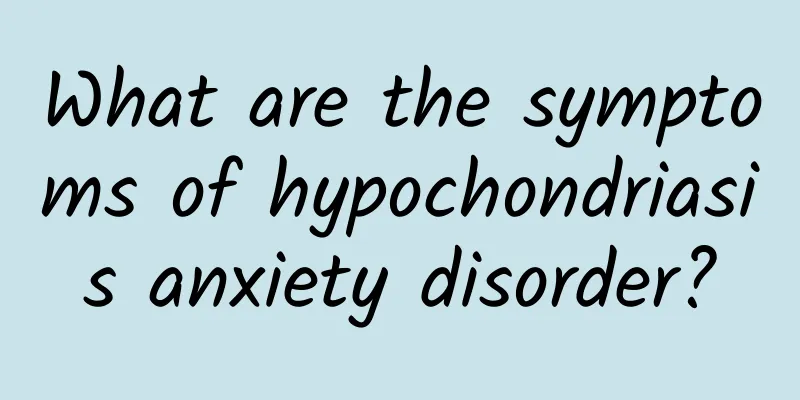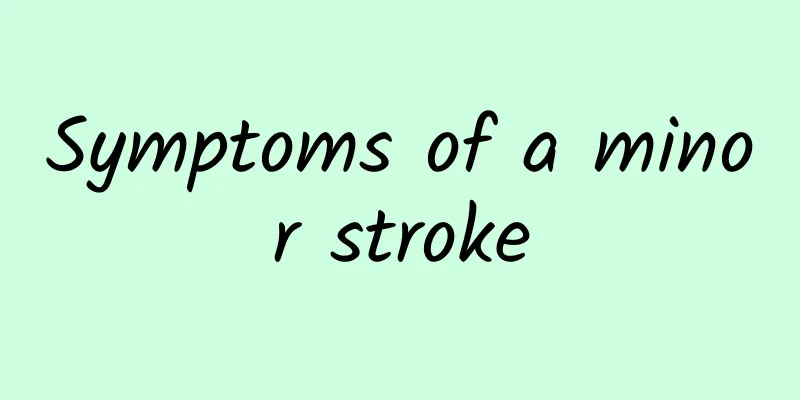Symptoms of mild mental illness

|
Mental illness is a relatively serious mental illness. If the patient has mild mental illness, good methods must be used for treatment. The earlier the treatment, the better the patient's recovery will be. Some symptoms of patients with mild mental illness are also relatively obvious. For example, there will be a decrease in will, the usual enthusiasm will be gone, and there will be no positive attitude. In addition, some neurasthenia will occur, which often causes dizziness, headache, insomnia and other symptoms. Symptoms of mild mental illness 1. The main symptoms of mild mental illness include loss of will: patients often change from their previous enthusiastic attitude and positive and motivated performance, and now become perfunctory, irresponsible for anything, and even start skipping classes. Their academic performance continues to decline, they do not listen to the teacher carefully, are unwilling to hand in homework, and even play truant, or their daily life becomes sloppy, they do not pay attention to their manners, and they no longer have the spirit of positive progress. They just do their job as usual and often cannot get out of bed until noon. 2. The symptoms of mild mental illness mainly include neurasthenia-like state: mental patients often become dizzy, have headaches, insomnia and nightmares, are easily forgetful, have poor concentration, men often have nocturnal emissions, women have irregular menstruation, and are obviously weak and deficient all over the body. Although they usually have many discomforts, they do not experience too much pain and often do not actively seek medical treatment. 3. The main symptoms of mild mental illness include personality changes: a person who usually has a good personality suddenly becomes irritable, unreasonable, or suspicious, thinking that everyone around him is against him. When he sees someone talking, he suspects that they are talking about him, and even suspects that if someone coughs, it is directed at him. These personality changes should be taken seriously. How to treat psychotic symptoms1. Be considerate of patients: Because patients have heavy psychological burdens and are in a bad mood, they are prone to become emotionally agitated, irritable, and even verbally abuse others. In this situation, stay calm and avoid arguing. We should comfort and understand them, try our best to meet the patients' reasonable demands, patiently explain things that cannot be done, avoid forcing orders, and do not make promises or deceive patients. 2. Exercise patients: Since schizophrenia requires a long period of consolidation treatment, the hospitalization time usually takes several months. In addition, due to some side effects of taking antipsychotic drugs, many patients always feel overwhelmed, easily fatigued, unfamiliar with the outside world, and afraid that they will not be able to adapt to future work and life. At this time, family members should encourage patients to participate in various activities, such as doing some lighter and safe labor, to enrich the patients' lives and gradually cultivate their social adaptability. 3. Stabilize the patient: Some patients have unreasonable words and deeds with their relatives during the illness. Their family members feel very aggrieved and the patients feel very guilty. At this time, you need to explain to the other party so that they can understand each other. You need to actively communicate your feelings with each other and prepare for the long-term stability of the disease. 4. Understand the patient: Many family members only know that their relatives are mentally ill. However, we really know nothing about the specific types of mental illness. This won’t work. Because the classification of mental illness is very specific, the treatment methods and even the directions of treatment for different mental illnesses are different. Therefore, among the five methods to be kept in mind when caring for patients with mental illness, it is necessary to understand the patient and understand the patient's symptoms. |
<<: Sleeping posture for patients with cervical spondylosis
>>: What to do if a mentally ill person hits someone
Recommend
Can't I eat mung beans when taking Chinese medicine?
It is not necessarily that you cannot eat mung be...
Taboos after face-lift injection
There are certain taboos after getting a face-sli...
Be careful if you have white spots on your tongue, beware of cancer!
Leukoplakia are white patches on the tongue mucos...
Why does my child feel nauseous and want to vomit after eating?
There are many reasons why children feel nauseous...
Insomnia and depression treatment
Many people have insomnia. When insomnia occurs, ...
How much is a pound of wolfberry
Wolfberry is a common decoration among many peopl...
Causes of high rheumatoid factor
Everyone should know something about rheumatoid. ...
How much is Lingzhi powder per pound?
The main ingredients of Ganoderma lucidum powder ...
One side of the female labia is cauliflower-shaped
As a woman, the most important thing to pay atten...
Do you know these summer whitening tips?
Pearl powder http://www.cndzys.com/yinshi/ningmeng...
Why does it cause lower abdominal pain when you are about to finish urinating?
Urination is something the human body needs to do...
What are the dangers of wisdom tooth extraction?
The pain and suffering caused by wisdom teeth tha...
What are the precautions for oral potassium supplementation?
In addition to taking potassium from food, you ca...
Weight loss and feeling dizzy
Weight loss is always an enduring topic. Because ...
What should I do if my hair is thin and sparse?
If your hair is thin and sparse, you should pay a...









